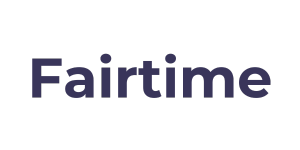What is wage theft and how can it impact my business?
Commonly referred to as wage theft in the media, the underpayment of workers may be more accurately described using the term “systemic underpayment.”
The Fair Work Ombudsman is more active than ever before with enforcement action for instances of wage theft. Employers are now at an increased risk of facing severe legal and financial penalties, with courts imposing heavy-handed civil penalties under the Fair Work Act 2009 provisions for cases of underpayment.
The obligations on employers have also increased. The system is much more onerous than it used to be and the law now requires that employers keep detailed records. These records may include shift start and end times, unpaid rest breaks as well as specific categories of hours worked including ordinary, overtime and hours attracting penalty rates.
On 1 November 2021, the minimum wages in 21 Modern Awards increased. On 1 July 2022, another group of industries will be impacted when their Award pay rates are moved up. Employers need to monitor their obligations to avoid the risk of non-compliance.
In the background to changes to minimum pay rates (often in line with Consumer Price Index), employers across a diverse array of industries are being monitored by the Fair Work Ombudsman. While the Modern Award system itself is nothing new, the enforcement action and monitoring by the Ombudsman is increasing.
As a result, the sectors that are reporting an increase in the number of wage theft cases and are potentially the most exposed include:
Social,Community,Home Care and Disability Services Industry Award 2010 (SCHADS Award)
Hospitality Industry (General) Award 2020 (Hospitality Award)
Clerks Private Sector Award 2020 (Clerical Award)
General Retail Industry Award 2020 (Retail Award)
Health Professionals and Support Services Award 2020 (Healthcare Award)
Nurses Award 2020 (NSW Nurses Award)
Manufacturing and Associated Industries and Occupations Award 2020 (Manufacturing Award)
Fast Food Industry Award 2010 (Fast Food Award)
Pharmacy Industry Award 2020 (Pharmacy Award)
Children’s Services Award 2010 (Childcare Award)
Fitness Industry Award 2020 (Fitness Industry Award)
Hair and Beauty Industry Award 2010 (Hair and Beauty Award)
Restaurant Industry Award 2020 (Restaurant Award)
What are the Penalties for Underpayment of Wages?
Currently, an employer found in breach may receive a court order to:
1. Pay an employee their outstanding entitlements (plus interest)
2. Take action such as doing an audit, undertake training or give an employee their job back
3. Restrain any behaviours by way of an injunction or interim injunction (to stop or re-instate employment or to prevent employee discrimination)
4. Pay an employee compensation for loss and damages suffered. Class actions in the underpayment space are on the rise.
5. The pervasive nature of underpayment in Australia is best shown through the sheer number of high-profile employers who were found to have engaged in large-scale wage theft.
Between 2019 and 2021, underpayment cases reported by news media have included:
Woolworths
Michael Hill
Subway
The Australian Broadcasting Corporation (ABC)
Qantas
Bunnings
Dominos
Commonwealth Bank
Sunglasses Hut
Super Retail Group
Putting reputational risk aside, underpaying staff can attract several penalties for the company and its senior staff members.
If through litigation, the organisation is found guilty, it may receive a fine of up to $66,000 per ‘ordinary’ violation, with a serious contravention leading to a maximum of $666,000.
An individual may receive a fine of up to $13,320 per violation, with a ‘serious contravention’ leading to a maximum fine of $133,200.
The upper limit of these fines are expected to increase by eightfold with the Government looking to pass laws to further stamp out systemic underpayment.
How do I protect my business and ensure compliance with Modern Awards?
To avoid enormous financial civil penalties as well as potentially having to face criminal charges, employers need to ensure compliance with changes on an ongoing basis.
Specifically, employers need to take stock of the Modern Awards impacted and the which categories that apply to their business. apply to the award. Depending on the size and nature of your business, this can become a stressful and complicated process. Further notification requirements to employees and updates to payroll processes become increasingly urgent in the face of growing Fair Work enforcement action.
Contact us to arrange a confidential no obligation health check to assess your business’s needs and to discuss how Fairtime can help reduce your risk of employee underpayment.



